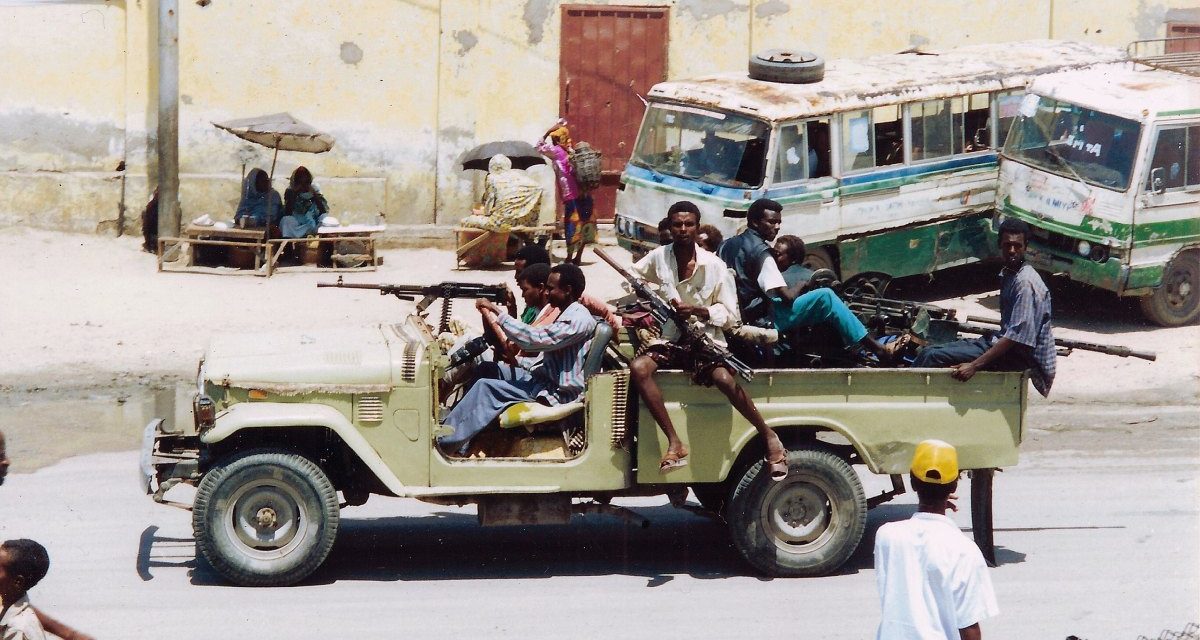
Thirty-one years ago today, at 3:32 PM local time, an assault force boarded helicopters and left an airfield near the Indian Ocean coast in Mogadishu, Somalia. A ground convoy departed the at the same time. The US special operations forces, part of Task Force Ranger, expected to be back within sixty minutes. The assault force would fast-rope to the ground near the Bakaara Market in the center of the city, raid a target building, link up with the ground convoy, and return to base with the detainees they planned to capture—senior lieutenants of the Somali warlord Mohamed Farrah Aidid.
Instead of arriving back at the airfield in an hour, though, the assault force did not return to safety until fifteen hours later, having suffered heavy casualties. Their experience in the war-torn city would go down as one of the most famous battles of the 1990s. The course of events on October 3–4, 1993 turned dramatically when armed militia fighters managed to hit three Black Hawk helicopters, two of which crashed in the city. The episode became known as Black Hawk Down after journalist Mark Bowden documented the events in a 1999 book by that name and Ridley Scott directed a film adaptation two years later. But apart from these popular treatments of the consequential battle, a rigorous and expert analysis of it reveals important lessons for urban warfare.
The ninth installment of the Urban Warfare Project Case Study Series undertakes that analysis, extracting key lessons from the Battle of Mogadishu at the strategic, operational, and tactical levels of war. You can read the case study here, and be sure to follow the Urban Warfare Project for future case studies and insightful analysis of challenges faced by military forces operating in cities.
Liam Collins, PhD was the founding director of the Modern War Institute at West Point and a Fellow at New America. He is a retired Special Forces colonel with deployments to Iraq, Afghanistan, Bosnia, the Horn of Africa, and South America, with multiple combat operations in Fallujah in 2004. He is coauthor of Understanding Urban Warfare.
Major Jayson Geroux is an infantry officer with The Royal Canadian Regiment and is currently with the Canadian Army Doctrine and Training Centre. He has been a fervent student of and has been involved in urban operations training for over two decades. He is an equally passionate military historian and has participated in, planned, executed, and intensively instructed on urban operations and urban warfare history for the past ten years. He has served twenty-eight years in the Canadian Armed Forces, which included operational tours to the former Yugoslavia (Bosnia-Herzegovina) and Afghanistan.
John Spencer is chair of urban warfare studies at the Modern War Institute, codirector of MWI’s Urban Warfare Project, and host of the Urban Warfare Project Podcast. He served twenty-five years as an infantry soldier, which included two combat tours in Iraq. He is the author of the book Connected Soldiers: Life, Leadership, and Social Connections in Modern War and coauthor of Understanding Urban Warfare.
The views expressed are those of the authors and do not reflect the official position of the United States Military Academy, Department of the Army, or Department of Defense, or that of any organization with which the authors are affiliated, including the Canadian Army Doctrine and Training Centre, the Canadian Armed Forces and the Canadian Department of National Defence.

